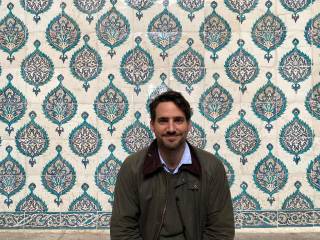Rodrigo García-Velasco specialises in the history of medieval Iberia, with a focus on economic and legal interactions between Jews, Muslims, and Christians in the regions that today comprise modern Spain, Portugal, and Morocco. At UCL he is conducting a project entitled Documentary Afterlives: Recycling the Past in Premodern Iberian Judiciaries, 1371-1600. The project considers why marginalised groups such as Jews, women and peasants chose to preserve legal documents in Castile during the Central Middle Ages, and how they later used these documents in their interactions with the central institutions of the monarchy during the fifteenth and sixteenth centuries.
Rodrigo is also working towards the completion of his first book, Jews and Muslims Before the Law in Christian Iberia, 1000-1200. This monograph studies how legal classifications of Jewish and Muslim difference first emerged in the municipal franchises and town laws known as fueros and cartas de población.
His wider research interests include the legal, theological, literary treatment of religious minorities in medieval Europe, transfers between Arabic and Latin literary traditions, the movement of people and ideas across the medieval Mediterranean, and the emergence of theories of pre-modern tolerance or convivencia in nineteenth-century Spanish historiography.
Publications
García-Velasco, R. (trans.), ‘The capture of Tortosa, by Caffaro Rustico da Caschifellone’, in David Thomas and Graham Barrett (eds.), Christian-Muslim Relations: A Reader of Primary Sources, Vol. II: 600-1500 (Bloomsbury, 2022).
García-Velasco, R., ‘ "Ala fur Tutila": Jews and Muslims in the Administrative Culture of Post-Conquest Tudela, c.1118-1220’, al-Masaq 29 (2017): 235-257
 Close
Close


